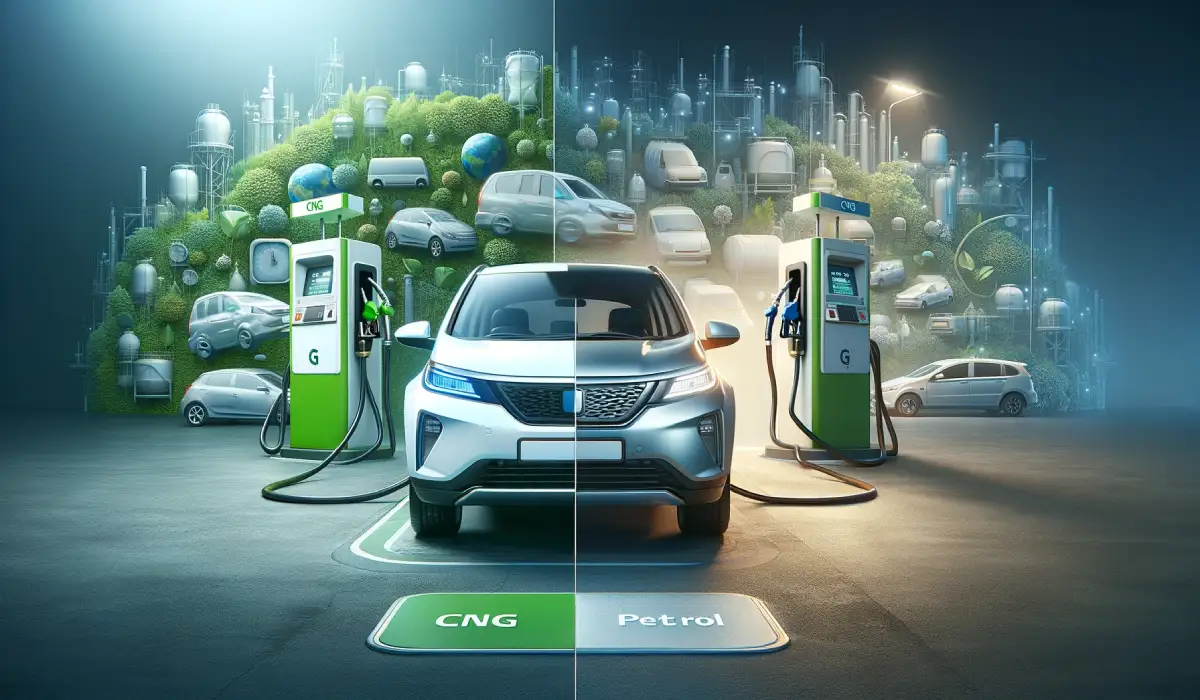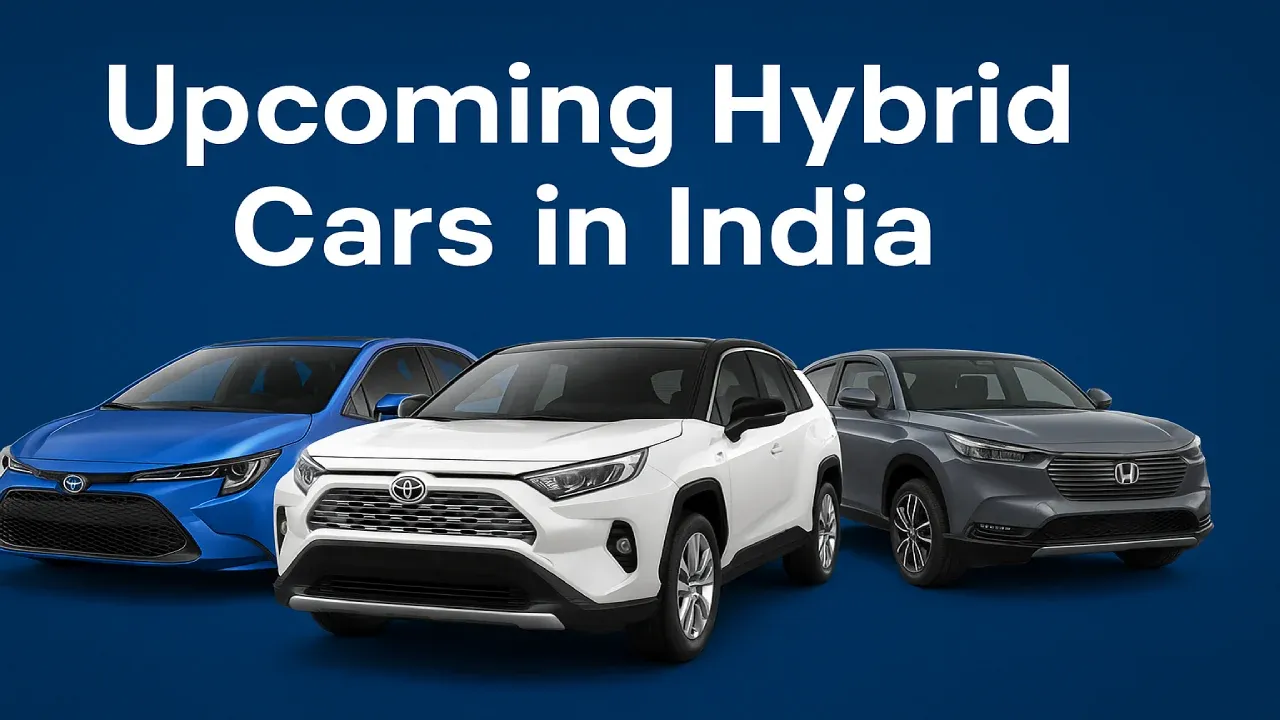The cost efficiency of the car, a key factor in the decision to buy cars for most people, influences the car choices in a great way. While Fuel type can be used as a proxy variable, the choices are vast in the market today. Today the transition towards sustainable fuels is faster than ever, and the market has a variety of options including Petrol. CNG, Diesel. Electricity etc. Stepping into the world of fuel choices, CNG and petrol cars present distinct advantages. Understanding their differences and assessing your needs helps determine the ideal choice for your driving requirements.
What is a CNG Car?
A CNG car operates on Compressed Natural Gas, a cleaner and more environmentally friendly fuel alternative. This eco-conscious choice emits lower levels of harmful emissions, reducing carbon footprint and contributing to cleaner air. The fuel is stored in high-pressure tanks, and while it's eco-friendly, the availability of CNG stations might vary. While the first recorded use of CNG in vehicles is tracked back to 1901, in St Louis, Missouri, the use of natural gas as a fuel was adopted widely in the 1930s. CNG vehicles are becoming increasingly popular due to concerns about the environment.
What is a Petrol Car?
Petrol cars, fueled by gasoline, have been the conventional choice for decades. Despite their widespread availability and convenience at fuel stations, petrol vehicles emit higher emissions compared to CNG cars. However, they often provide better performance and power output. Using the spark-ignited internal combustion engine and the advancements in technology over the years, Petrol cars are the best deal for your buck whenever it comes to an overall score.
CNG Car vs Petrol Car: Which is the Best?
Choosing between CNG and petrol cars boils down to various factors, including environmental concerns, cost-effectiveness, and availability of fuel stations. We are here to help you by presenting you a few aspects to grasp which one is better for you and up to what extent? Evaluating these aspects ensures you pick the best-suited option aligning with your preferences and driving needs.
| Parameters | Petrol Car | CNG Car |
|---|---|---|
| Fuel Price | High | Low |
| Car Price | Most affordable | Expensive compared to petrol, cheaper than diesel cars |
| Performance | Good | Lower power output, slight lag in power delivery |
| Comfort | Refined, low NVH levels | Refined, comparable to petrol cars |
| Boot Space | Spacious | Not ideal, CNG takes up most of the boot space |
| Mileage | Lower than CNG cars | Higher than petrol and diesel cars |
| Running Costs | High | Low |
| Maintenance Costs | Lower than CNG cars | Highest due to the CNG kit |
| Environmental Impact | Not environment-friendly | Environment-friendly |
| Fuel Availability | Easily available | CNG stations are difficult to access |
CNG vs Petrol: Mileage
CNG's Higher Mileage: CNG vehicles typically provide superior mileage owing to the cost-effectiveness of CNG as a fuel source.
Petrol's Lower Mileage: Petrol cars may exhibit slightly lower mileage compared to CNG vehicles, affecting long-term fuel expenses.
According to AutoCar India, CNG offers around 1.5 times better fuel efficiency than petrol cars, emphasizing its economic advantage.
Justification for Additional Investment: The additional investment in a CNG variant over petrol becomes justifiable with a monthly running of approximately 1,500 km, ensuring economic viability.
CNG vs Petrol Car: Engine Life
CNG's Cleaner Combustion: Cleaner combustion in CNG engines could lead to an extended engine life by reducing wear and tear.
Petrol Engine Wear: Petrol engines may encounter comparatively more wear, potentially affecting their overall longevity.
Myth about CNG: There's a misconception surrounding CNG cars that the fuel reduces engine life, although evidence suggests otherwise.
CNG Car vs Petrol Car: Maintenance
CNG cars usually require more frequent servicing, primarily focusing on the gas cylinder checks.
Petrol cars tend to have more conventional servicing requirements, focusing on engine performance and fuel systems.
CNG vs Petrol Car: Cost
CNG cars typically have a cost advantage with cheaper fuel prices per kilometer compared to petrol.
Petrol cars might incur higher expenses due to the relatively expensive nature of petrol.
CNG vs Petrol Car: Boot Space
The boot space of both the petrol and CNG versions are almost the same.
Usually petrol cars take up the lead, when a CNG tank takes up more trunk space.
Advantages & Disadvantages of Petrol Cars
Advantages of Petrol Cars:
Lower Initial Cost: Cheaper upfront cost compared to CNG and diesel cars.
Comfortable Drive: Low NVH levels ensure a comfortable driving experience.
Performance: Deliver better low-end performance with stable overall power output.
Lower Maintenance: Generally incur lower maintenance expenses.
Wide Availability: Petrol cars benefit from widespread availability of fuel stations, ensuring easy refueling across most locations.
Higher Performance: Known for offering robust performance, petrol engines provide better acceleration and power compared to other fuel types.
Disadvantages of Petrol Cars:
Higher Emissions: Petrol engines emit higher levels of pollutants, often criticized by activists and even policy makers. Hence, a cap of 15 years is put on the age of cars while registering again, in India.
Higher Running Costs: Expensive due to higher fuel prices.
Performance: Inferior torque and high-end performance compared to diesel engines.
Advantages & Disadvantages of CNG Cars
Advantages of CNG Cars:
Cost-Effective: Low running cost due to cheaper CNG fuel compared to petrol and diesel.
High Fuel Economy: CNG cars offer a commendable fuel economy.
Environmentally Friendly: Emit fewer carbon emissions, making them eco-friendly.
Fuel Flexibility: Provide the option to use both CNG and petrol fuels.
Environmentally Friendly: CNG cars significantly reduce carbon emissions, playing a role in minimizing environmental impact.
Cost-effective Fuel: CNG is notably cheaper compared to petrol, contributing to lower running costs for CNG vehicle owners.
Disadvantages of CNG Cars:
Performance Lag: Exhibit lower performance than petrol and diesel cars.
Limited Range: Smaller CNG tank affects full-tank driving range.
Boot Space Constraint: CNG cylinder occupies boot space.
Refueling Hassle: Fewer CNG stations create refueling challenges.
Higher Costs: More expensive due to added CNG kit and maintenance expenses.
Slightly Reduced Power Output: CNG engines may deliver slightly lower power compared to petrol engines, causing a slight compromise in performance.
Conclusion
It is important to consider your life needs, habits and desires as well as finances, while choosing the car and its fuel type. The long-term implications show CNG cars as a better alternative, and the technology is finally letting them catch up in terms of power. But if the fuel availability is your priority, especially when you are in a tier-3 city, a town or a sub-urban area, petrol cars are always the winner.
Assess your priorities and driving habits to determine the most suitable option that aligns with your needs. Happy Buying!




